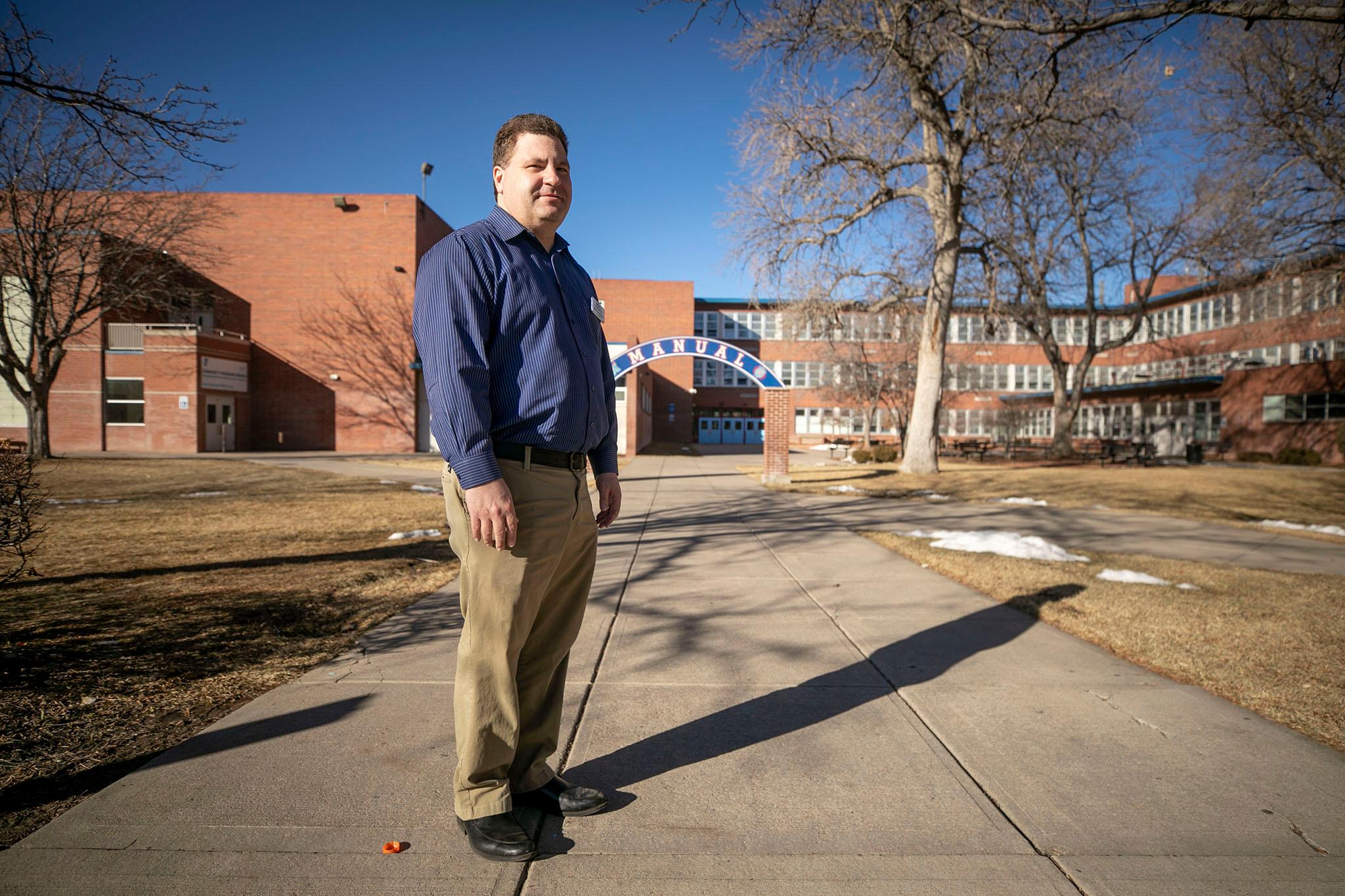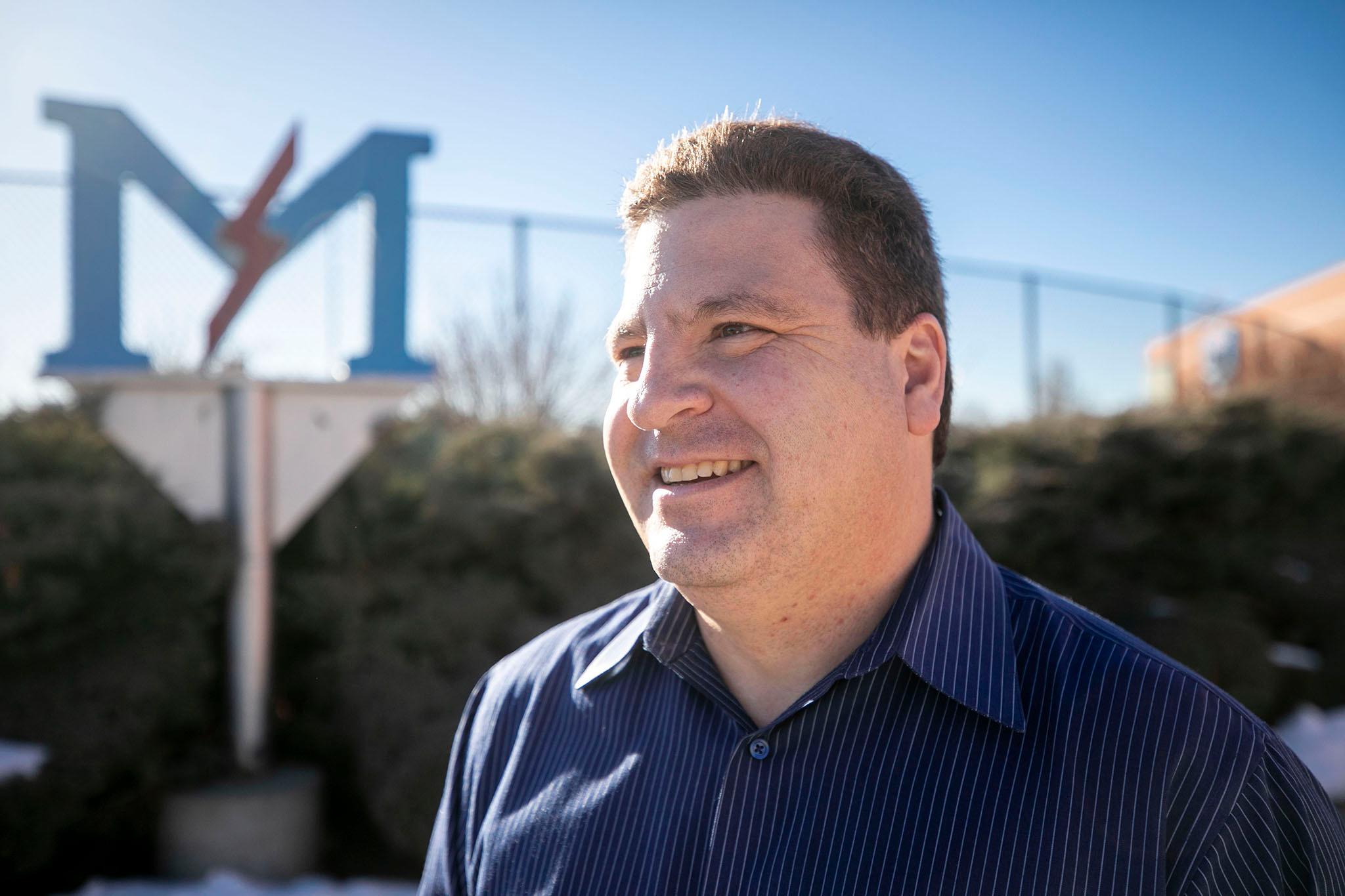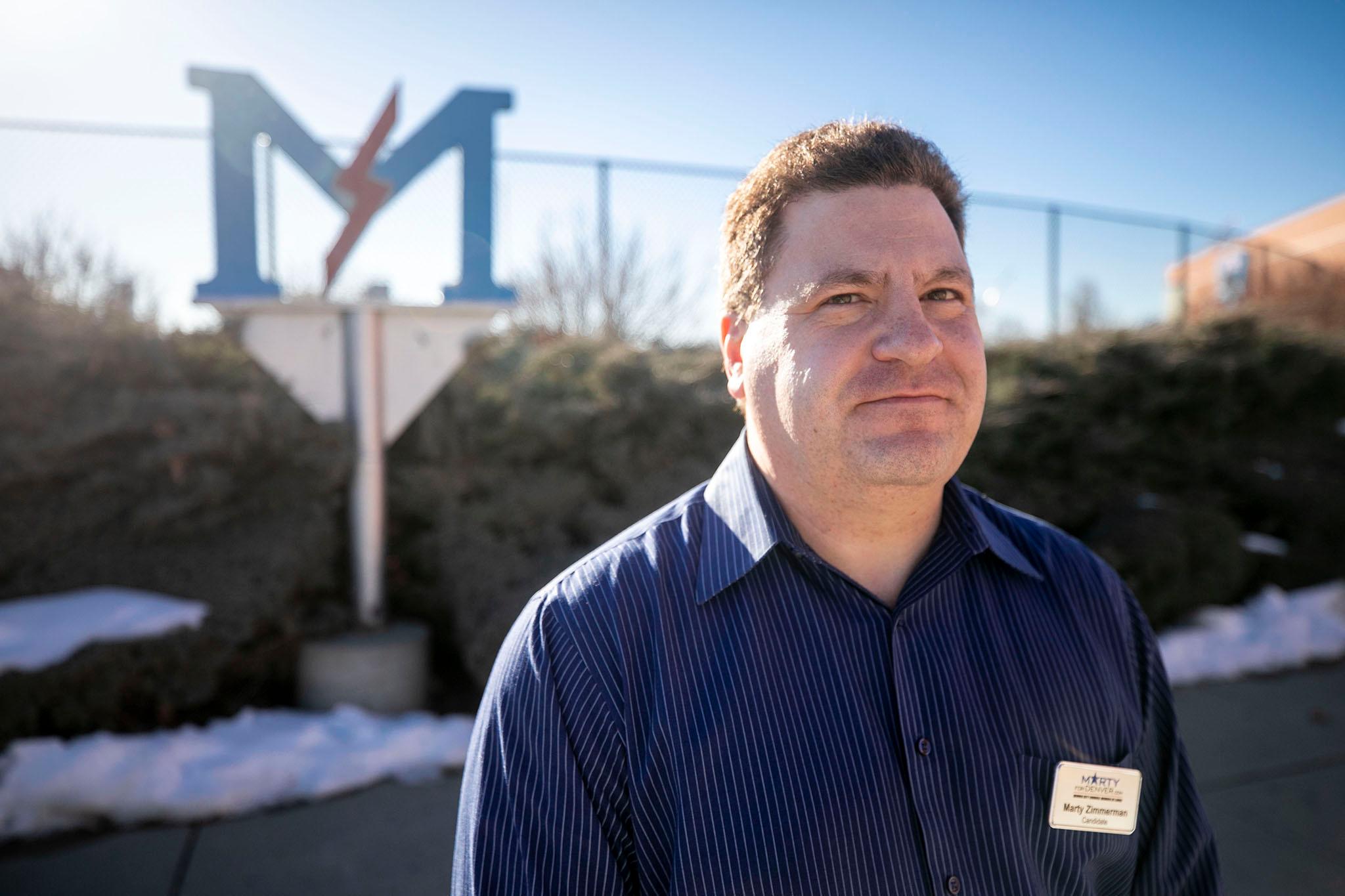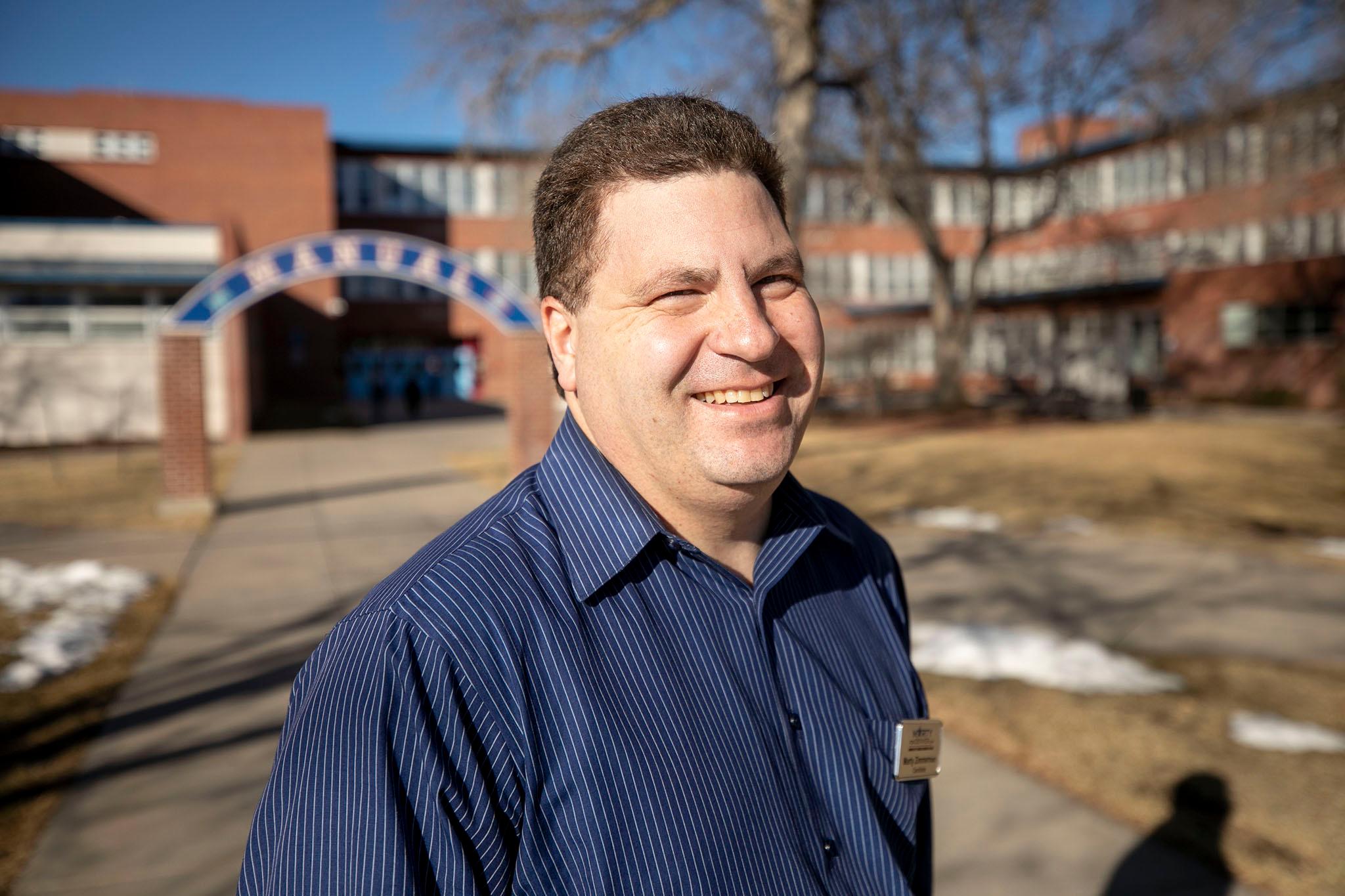When Marty Zimmerman was 13, his father was sent to prison for a crime Zimmerman believes he did not commit. His father spent eight months at a minimum facility prison.
"I know that if my father's skin color was different, if he was Black, or brown, or different color, he would not have been able to be there for just eight months, he would have been there for a lot longer amount of time, and yet his experience there was absolutely terrible, and it truly impacted me," he said.
It's an experience Zimmerman said drove him to work in the nonprofit sector, and ultimately to run for an at-large seat on Denver's City Council. He joins eight others in the race for two at-large seats that are wide open, with incumbent Councilwomen Debbie Ortega and Robin Kniech being term-limited.
Zimmerman's consulting business works with nonprofits. He wants to bring his connections with those groups and coalition-building experience to local government.
Zimmerman grew up in Denver, got a masters in social work with a focus on nonprofit management and spent his early career fundraising for the Jewish Federation, a coalition of Jewish nonprofits. He became dissatisfied with consultants who gave organizations plans but offered no help in implementation. He founded Zim Consulting 16 years ago to helps nonprofits with both planning and implementation.

"We have worked with almost every major nonprofit in the Metro Denver area," he said, which is a large reason why he is running at-large as opposed to in District 5. "I want to make sure that the voices of the nonprofits and voices of the people who are not represented are at the table and are included, and not just go back to the same people because we've always gone back to them."
Zimmerman also pointed to his civic engagement over the years as an education in local governance and coalition building. He was president of the board of his former school, Manual High School in east Denver, chair of the Denver Mayor's Youth Commission and president of his synagogue. He also teaches an entrepreneurship class at Denver Jewish Day School.
"The teenagers keep me humble," he said. "I've seen exactly firsthand what COVID has done to education."
When it comes to top issues, Zimmerman pointed to four he hears most often from people: Affordable housing, homelessness, public safety and economic development.
On the housing front, Zimmerman wants to use motels, hotels and vacant homes for transitional housing. He supports creating community land trusts as a way to prevent displacement, rezoning for accessory dwelling units and using city properties for affordable housing.
To help people experiencing homelessness, Zimmerman supports a housing-first model, an approach that prioritizes providing housing. He wants to stop encampment sweeps and instead spend resources on safe outdoor spaces, increase security cameras in shelters and grow mental health, disability and veteran resources.

"I am not in favor of the sweeps that are happening," he said. "If I were to make a comparison, imagine if you had the Marshall Fire come through every two weeks and remove your house."
Zimmerman's approach to public safety involves growing after-school and violence prevention programs, as well as Denver's Support Team Assisted Response program (STAR), the mental health care emergency response alternative to police. He wants to increase motion sensors to deter theft, distribute gun locks and follow recommendations from the Reimagining Policing task force.
"I'm not in favor of defunding police, I am in favor of increasing training," he said.
On the economic development front, Zimmerman said he's seen firsthand the inequities and roadblocks in the system, having started businesses himself and supported others through his company. He wants to address permitting backlogs, help formerly incarcerated and disabled people get jobs and grow opportunities for minority-owned businesses.

In addition to his father's past incarceration, Zimmerman pointed to a second moment from childhood that drives his politics.
During his high school graduation ceremony in May 1994, a Black student named Kinshasa Sayers took the microphone to speak out against racism at Manual and low graduations rates of Black students, according to Denver Post archives. Graduating students and supporters of Sayers scuffled with each other over the interruption, requiring police intervention. One arrest was made.
Zimmerman said he stayed put but recalls that one white person, who was sitting next to him, went up to support Sayers.
"Every other person who was white was just sitting in the audience watching, not sure what to do, not sure where to go," he said.
"He asked me, 'Was it right for me to go up there?'" Zimmerman recalled. "And that question has always made me question, what is equality? What is right? What is wrong? And why should we just sit back and watch? Why can't we be active and be involved?"
Editor's note: This story has been updated with the finalized candidate list that will appear on the 2023 municipal election ballot.













